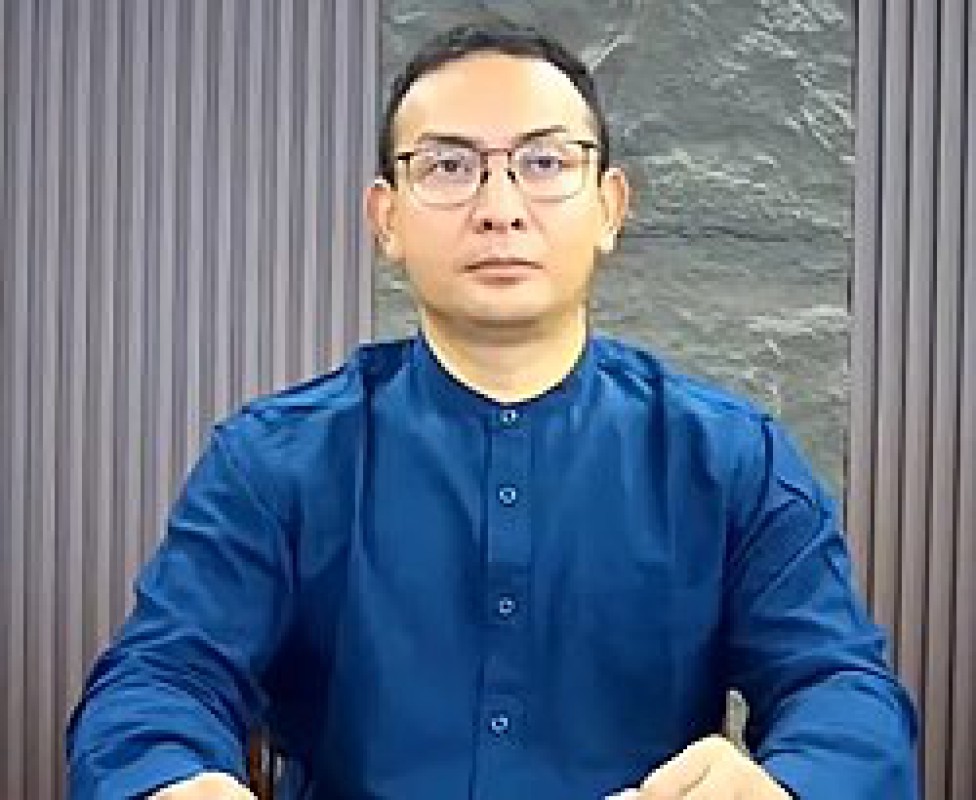AA leaders’ uncertain future under international legal spotlight

676

Phyo (NP News) - Sep 9
The future of the Arakan Army’s (AA) top leadership appears increasingly uncertain as international legal pressure mounts and military realities in Rakhine State shift on the ground.
The UK-based Burmese Rohingya Organisation UK (BROUK) has formally requested the Argentine Federal Court to expand existing arrest warrants to include AA leaders, naming Commander-in-Chief Major General Twan Mrat Naing, Deputy Commander-in-Chief Brigadier General Nyo Twan Awng, and others in the chain of command.
The appeal is tied to one of the deadliest atrocities in recent memory: the discovery of the skeletal remains of more than 600 Bengalis in Htan Shauk Khan village, Buthidaung Township. According to BROUK, the killings took place on 2 May 2024, when AA fighters reportedly massacred hundreds of villagers in a single day.
Survivors provided harrowing testimony. One witness recalled how villagers were stopped by AA fighters, divided into three groups in nearby paddy fields, and then gunned down. “It was a river of blood… I saw shooting. I saw mass killing. It was a lot of guns; people were shot in the legs and chest,” the survivor said. Another survivor recounted losing 20 relatives, including three children.
International NGO Fortify Rights has corroborated a broader pattern of AA abuses, including torture, disappearances, and detention of Bengali men in ad-hoc detention centres. Aid agencies have warned that these abuses are unfolding against a worsening humanitarian backdrop, with Bengali communities facing acute hunger and displacement.
BROUK argues that the atrocities cannot be viewed as isolated incidents. but rather as part of a decades-long pattern of genocide and crimes against humanity inflicted on the Bengalis. For that reason, the organization has turned to the Federal Court in Buenos Aires, which has previously accepted genocide-related cases under the principle of universal jurisdiction.
Amid these allegations of Htan Shauk Khan’s mass killings by AA, Twan Mrat Naing briefly surfaced in August 2025 in photographs showing him meeting with civilians in Kyauk Khot village, Minbya Township, Sittwe District. Only about 20 children, one young man, and 20 elderly women attended the gathering. Observers noted that the photos suggest a decline in the AA’s strength.
At the same time, questions are being raised about the commander’s distance from the realities on the ground. Reports suggest Twan Mrat Naing no longer resides in Rakhine State and has relocated his family to Switzerland. Critics argue that while AA troops fight and die in the name of Rakhine self-determination, their leader is absent, exploiting the movement and its supporters to ensure his family’s safety abroad.
The Arakan Army (AA) has been fighting the Tatmadaw since November 2023, seeking to seize political and territorial control of Rakhine State by exploiting internal instability. Currently, the AA is believed to control 14 of the state’s 17 townships. Despite its territorial gains, the Tatmadaw continues counteroffensives, including aerial bombardments in Minbya Township around the time of Naing’s reported appearance.
Meanwhile, Myanmar’s State Security and Peace Commission (SSPC) has announced multiparty general elections, with the first phase scheduled for 28 December 2025. Only three townships outside AA control—Kyaukphyu, Sittwe, and Munaung—will participate in this phase. As the elections approach, Tatmadaw forces are expected to intensify their operations in an attempt to retake further territory.
The combination of legal scrutiny abroad and intensified conflict at home places AA leaders in a precarious position. They are caught between external accountability and the need to survive internally.
Rakhine’s geopolitical importance further complicates matters. The state is home to major international infrastructure projects, including China’s Kyaukphyu deep-sea port and India’s Kaladan River project. Both initiatives are designed to expand regional connectivity and strategic influence. If violence continues and foreign investments are jeopardized, analysts warn the AA risks alienating the international community and placing itself in an even more vulnerable position.
The future of Twan Mrat Naing and Nyo Twan Awng is now fraught with uncertainty. On the one hand, they preside over an armed force that has achieved unprecedented territorial control in Rakhine State. On the other, they are accused of genocide and crimes against humanity. They also face potential prosecution in Argentina, and a worsening international image of the AA.
BROUK’s legal move signals that international accountability mechanisms could be extended to ethnic armed groups accused of atrocities. Whether or not the Argentine judiciary will act on BROUK’s request remains to be seen, but the symbolic impact is already significant: the AA’s violent acts are no longer shielded from the global spotlight.
As the Tatmadaw presses forward with military campaigns and the SSPC prepares for elections, the AA’s path forward looks increasingly narrow. That is why, the question of how Twan Mrat Naing and Nyo Twan Awng will the dual challenges of legal jeopardy abroad and military realities at home remains. –